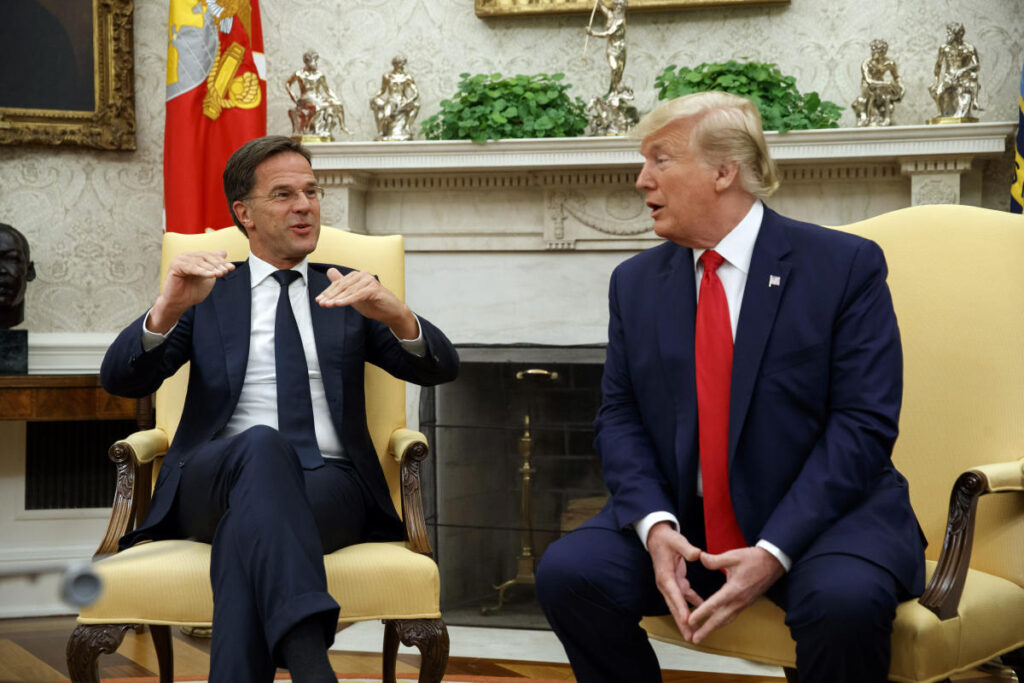U.S. President-elect Donald Trump met with NATO Secretary General Mark Rutte in Palm Beach, Florida, for discussions surrounding global security issues pertinent to the NATO alliance. This meeting marked Rutte’s first engagement with Trump following his election victory on November 5. During their conversation, the leaders addressed a range of concerns related to security challenges facing NATO, although details of the discussion were not disclosed. Rutte has previously expressed confidence in Trump’s leadership capabilities, emphasizing his potential role in maintaining the strength of NATO as the alliance navigates contemporary security dynamics.
Historically, Trump has shown skepticism regarding NATO, often criticizing the alliance’s structure and the military expenditure of its member states. He has frequently labeled NATO allies as dependent on U.S. military support, suggesting that many do not contribute adequately to their collective defense obligations. This viewpoint reflects Trump’s broader approach to international relations, where he prioritizes national interests and advocates for fairer financial contributions among allies. His stance has included threatening to withdraw American defense commitments to NATO countries that fall short of agreed-upon defense spending targets.
Rutte’s appointment as NATO chief occurred in October, which emphasized the importance of presenting a united front as the alliance faces evolving global threats. The meeting between Trump and Rutte serves as an essential step in establishing a working relationship between the U.S. and NATO under Trump’s presidency. Rutte, representing a critical European ally, has a vested interest in ensuring NATO’s relevance and effectiveness in addressing multifaceted security challenges, including terrorism, cyber threats, and geopolitical tensions with adversarial nations.
In addition to Rutte, the discussions also involved Trump’s national security advisor selection, U.S. Representative Michael Waltz, along with members of Trump’s national security team. This illustrates Trump’s proactive outreach to key NATO leadership, aiming to solidify a shared understanding of pressing security issues and to foster collaboration in addressing them. The alliance’s ability to adapt to the changing geopolitical landscape will depend significantly on the leadership dynamics established in these early meetings.
The implications of Trump’s skepticism towards NATO contribute to ongoing debates about collective defense and burden-sharing among member states. The alliance has historically functioned as a cornerstone of U.S. foreign policy, and Trump’s critical perspective raises questions about the future of transatlantic cooperation. Throughout his election campaign, Trump indicated a willingness to reassess commitments to European allies, potentially recalibrating U.S. influence within NATO and prompting member nations to reevaluate their defense strategies and expenditures.
As the world grapples with heightened security uncertainties, the meeting between Trump and Rutte underscores the pressing need for NATO to reaffirm its solidarity and address the challenges posed by global threats. Strengthening cooperation and ensuring a balanced financial commitment among member nations are vital for the alliance’s resilience. The dialogue initiated between the leaders is pivotal as NATO seeks to maintain its credibility and operational effectiveness amidst an uncertain international environment, with both leaders likely aware of their shared responsibility in shaping the alliance’s future trajectory.

